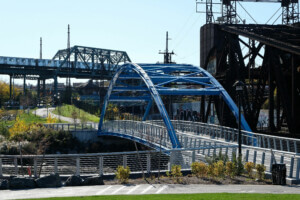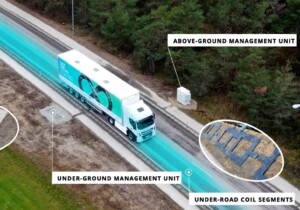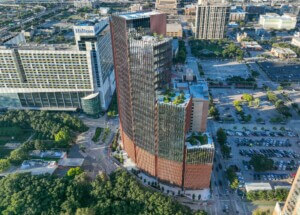A sublime piece of modern architecture, the United Nations Headquarters is a time capsule that preserves almost intact the spirit of the 1950s. From the head sets to the tapestries, which hide the most breathtaking views of Brooklyn and the East River, everything has the air of an early James Bond movie. On May 13th, however, the UN was looking forward to pressing environmental challenges and their urban solutions, as the host of the second part of the “Conference on Sustainable Urbanization in the Information Age,” entitled “The Role of Infrastructure in Metropolitan Development.”
Speakers from places and realities as diverse as Mexico, Estonia, Spain, Australia, Kenya, and the UK agreed that urban living is the greenest way to live. “Living well is the only sustainability,” concluded New York’s own Rick Bell, Executive Director of the AIA NY chapter, and that seemed to be the motto throughout the sessions. With the world urban population growing at an incredible pace (I was shocked to discover that my home country of Uruguay leads the world ranking with 91 percent of its population living in urban areas) speakers called for responsible planning, emphasizing the usual topics of density, public transport, affordable housing, and sanitation.
What was a surprise, though, was the acknowledgment by many officials that governmental and sub governmental systems were inefficient and over regulated, impeding the implementation of better policies. Conflicts of governance and large bureaucracies, along with poor civic engagement and lack of private and public partnerships make it difficult for all these “good intentions” to be put to practice.
When our planet is in peril, it is no surprise that major attention should be taken to cities, after all “urban centers are the ticking hearts of civilization,” to use words of Sarbuland Khan, of the Global Alliance for Information and Communication Technologies. Also cities are the epicenter of the catastrophic global economic crisis in which we are living, but nevertheless, it is important not to compromise sustainable practices for the sake of reactivating the economy. The US government’s promises to end the economic slump come in the form of a stimulus package for infrastructure, but the kind of infrastructure we plan will determine the way we live and use the cities of the future, so we must chose responsibly. Keynote speaker Under Secretary-General Dr. Anna Kajumulo Tibaijuka plead to consider this as an opportunity to instill principles of sustainability into infrastructure development: “The challenge is to integrate economic environmental and social policies to make our cities economically more competitive, ecologically more sustainable and socially more inclusive and gender responsive. It is important to recognize success factors and remove barriers to their replication… we need local action if we are going to achieve global goals.”
It is high time we put aside political interests and start acknowledging that these challenges are not part of some dystopian future, but are right around the corner. Let’s just hope those with the power to make these decisions do so wisely.










